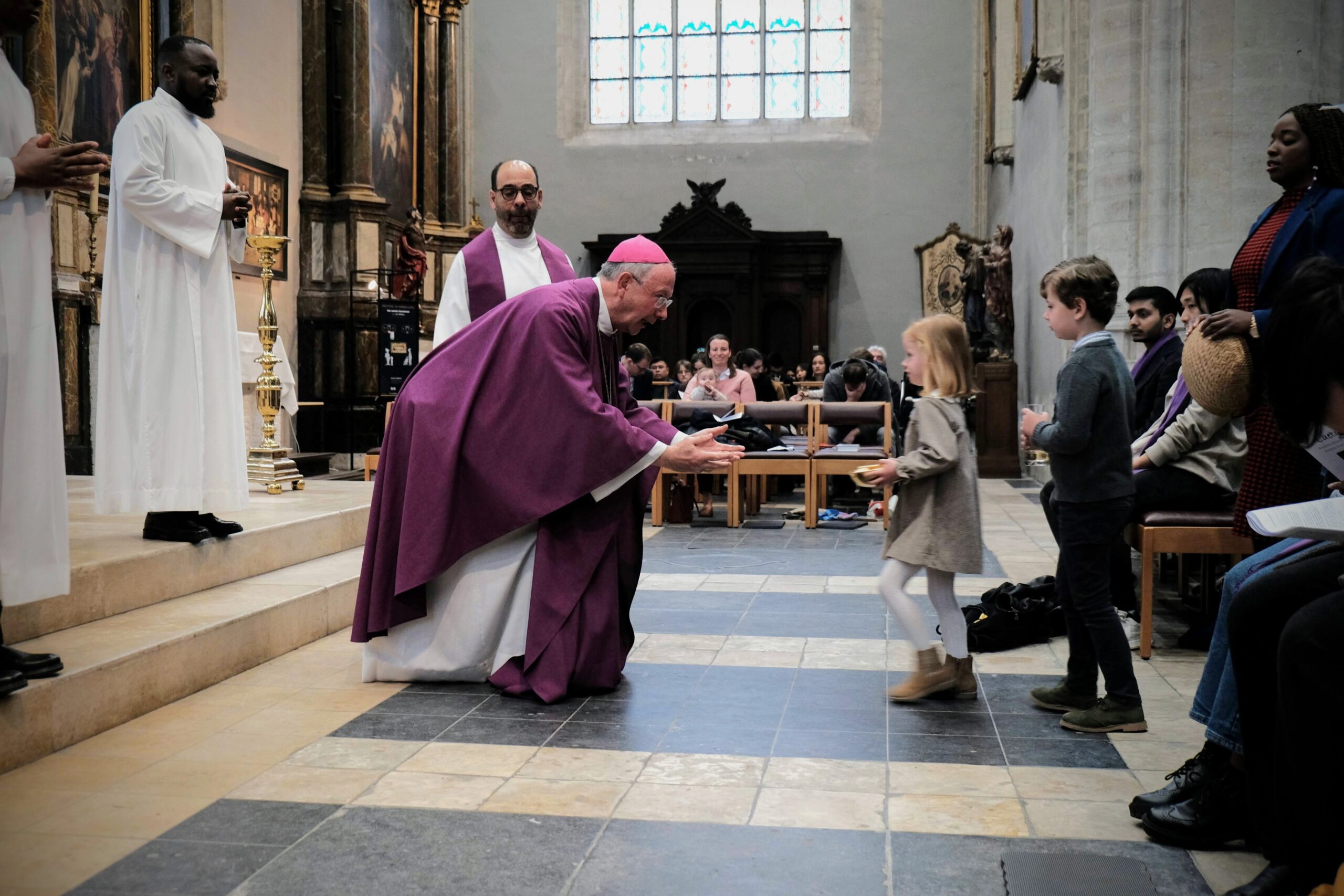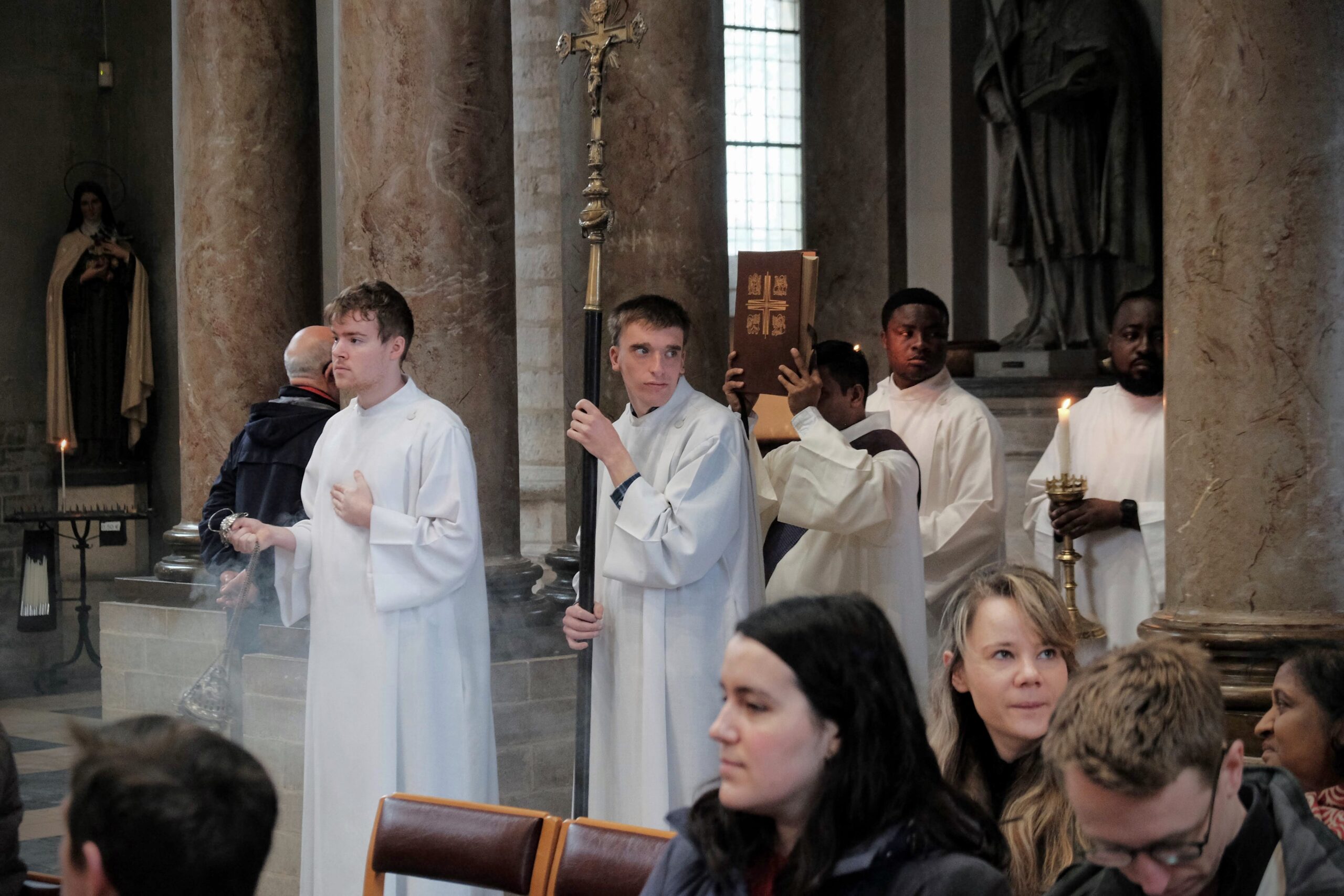
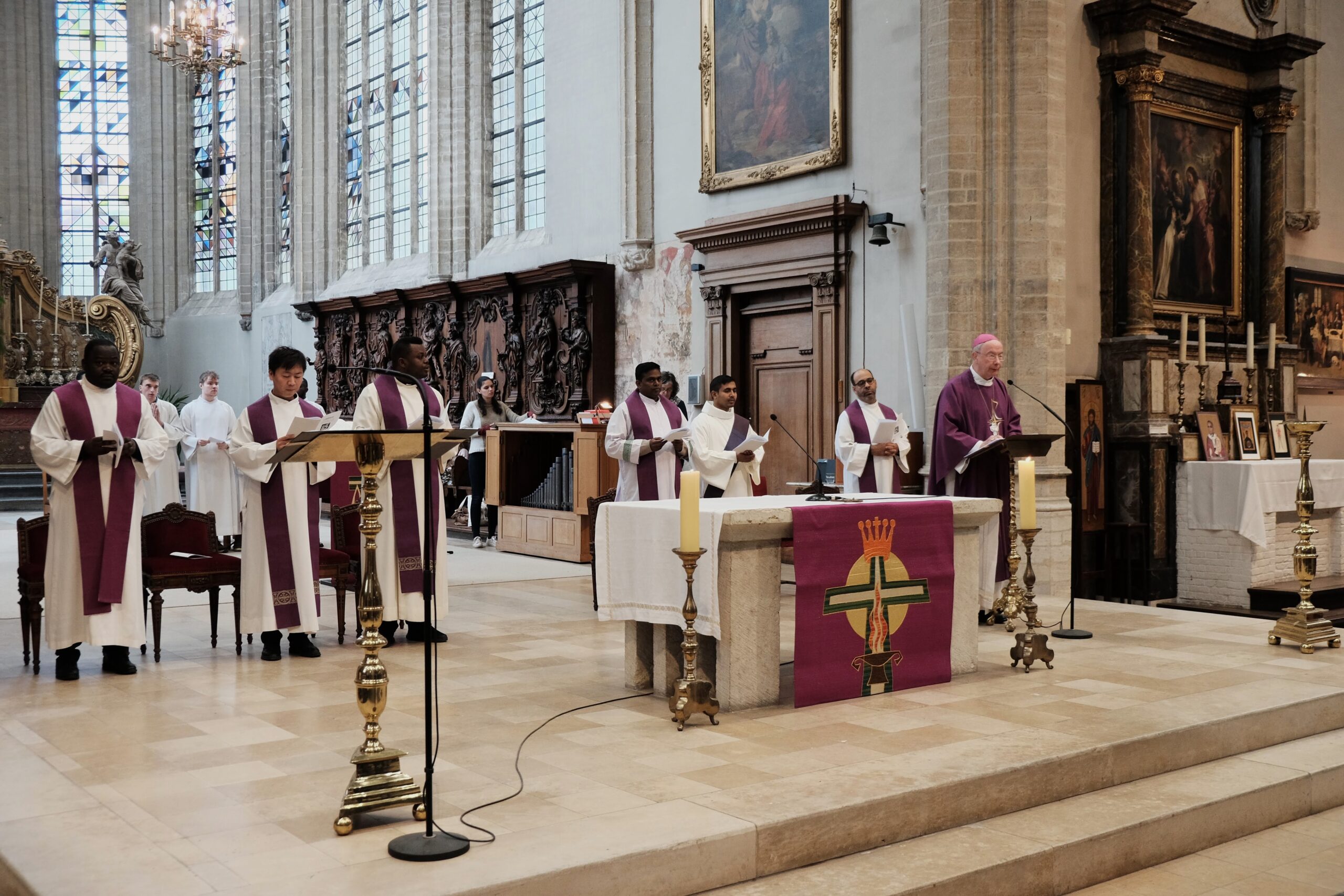
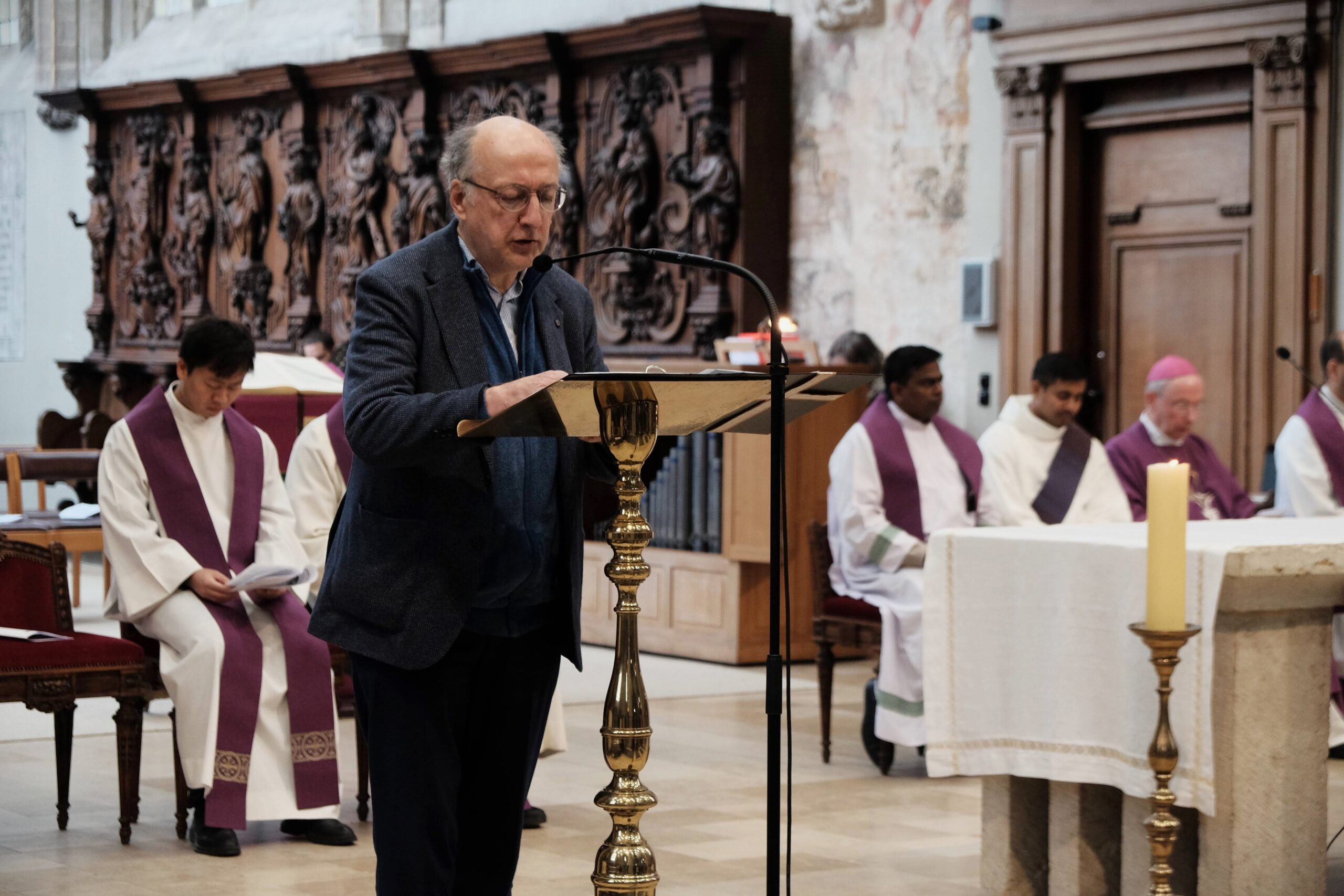
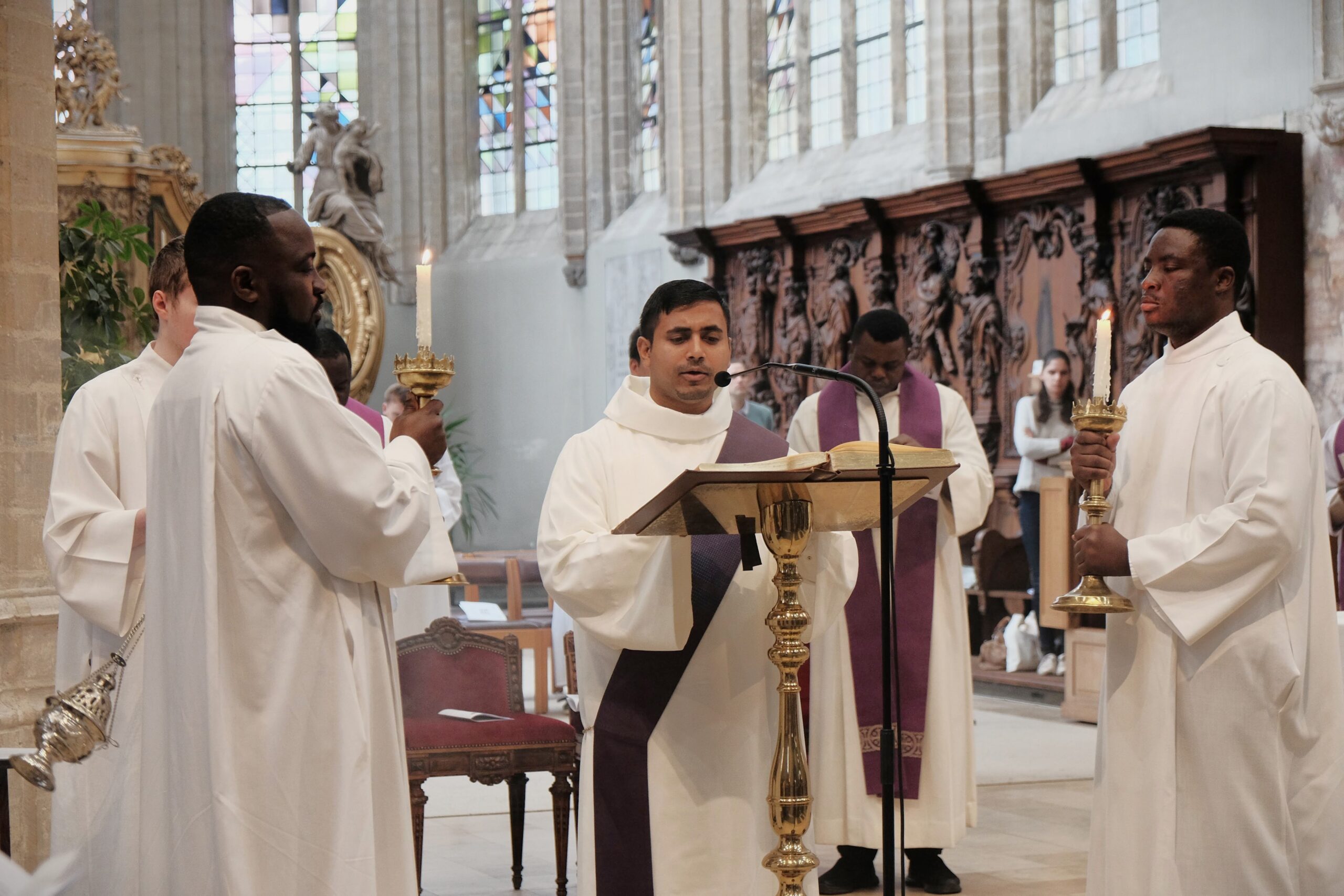
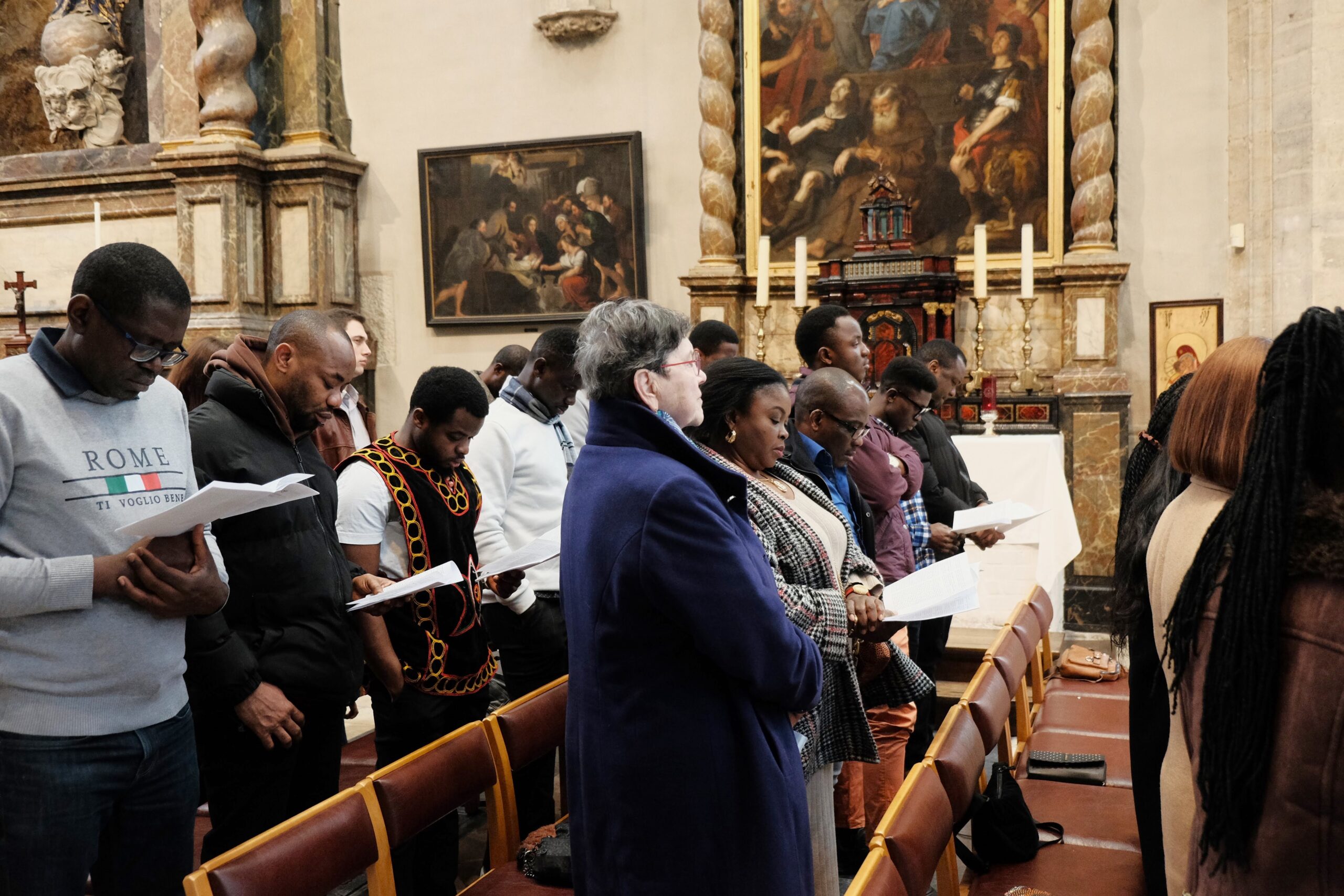
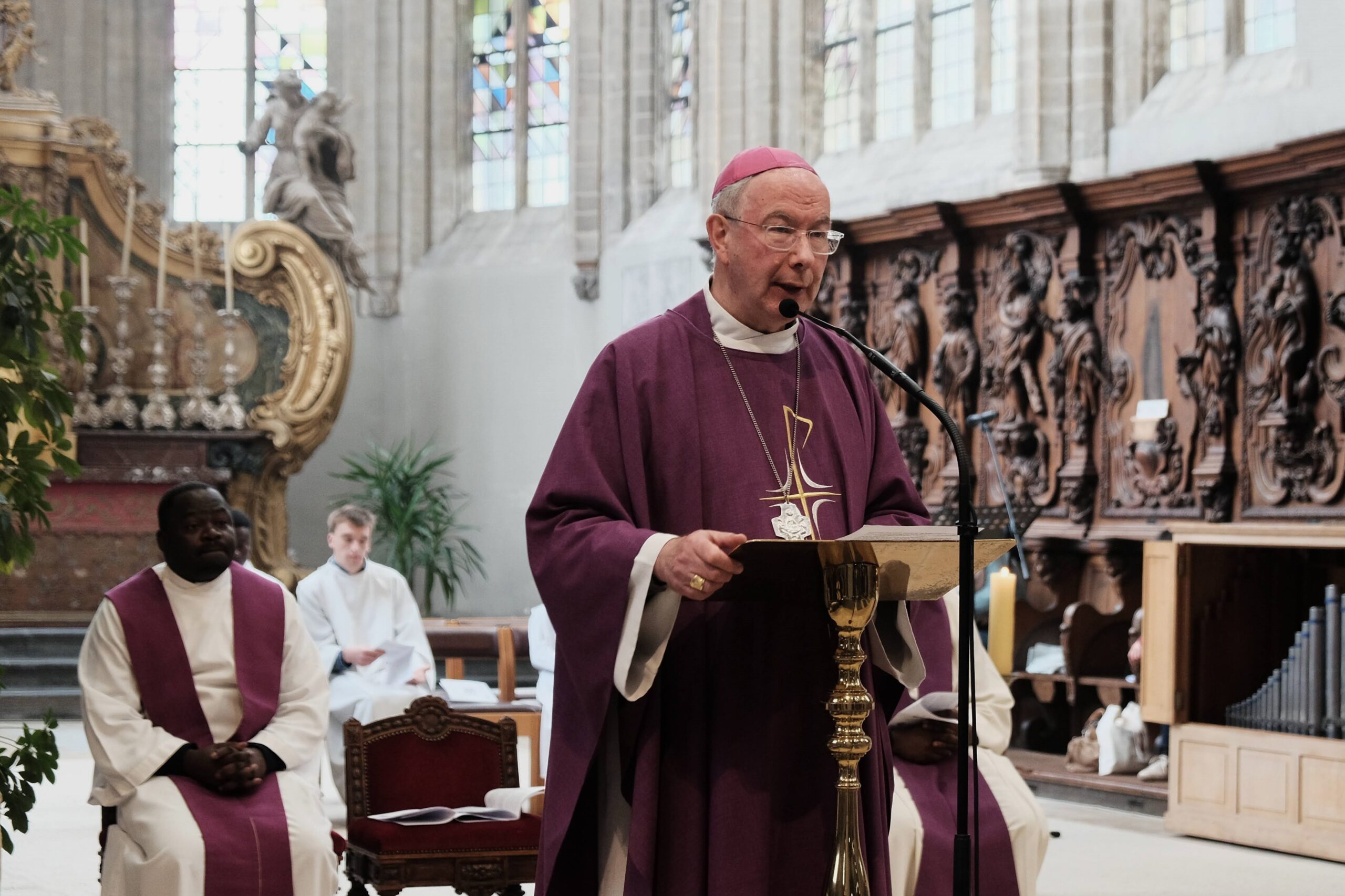
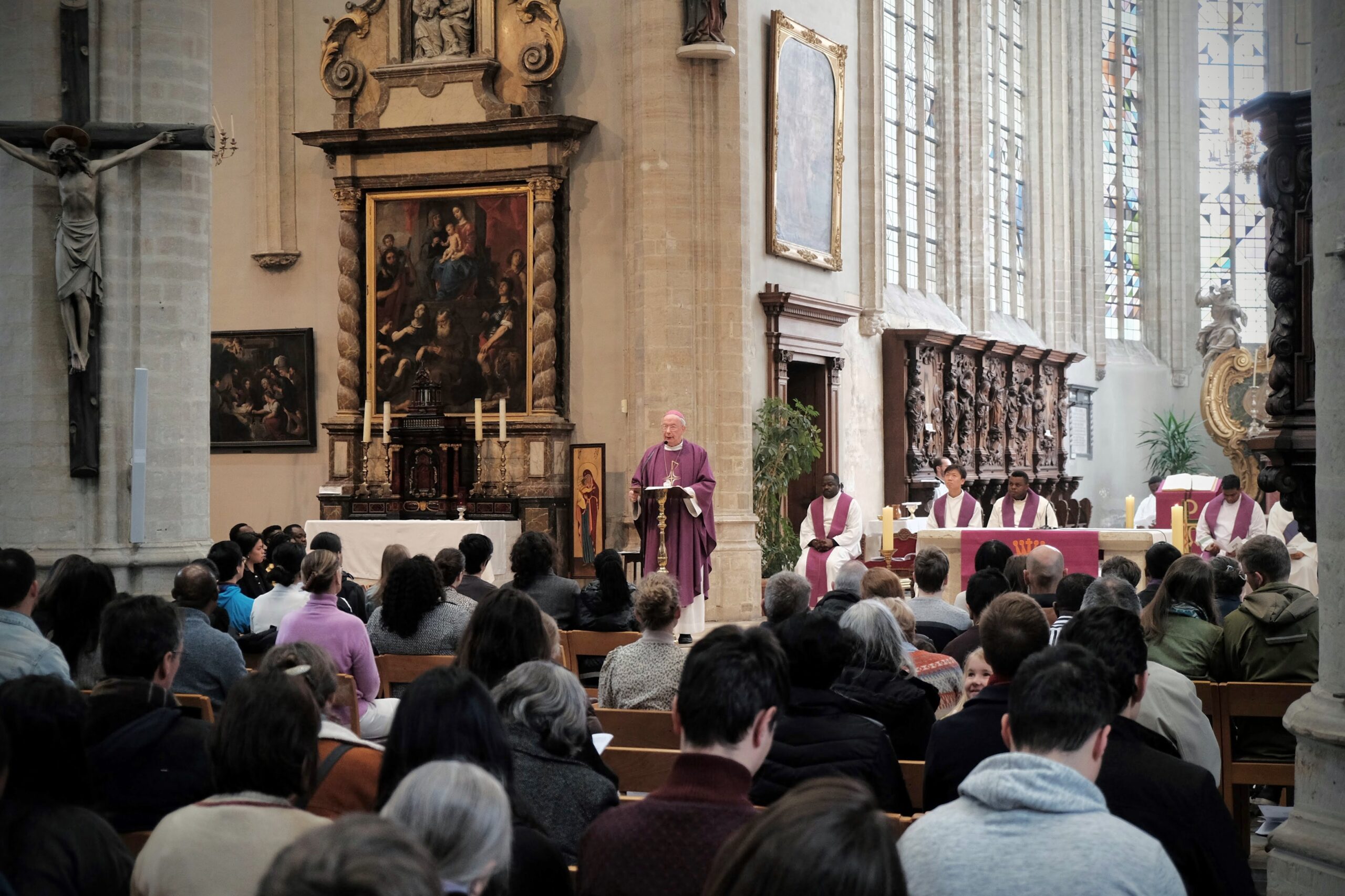
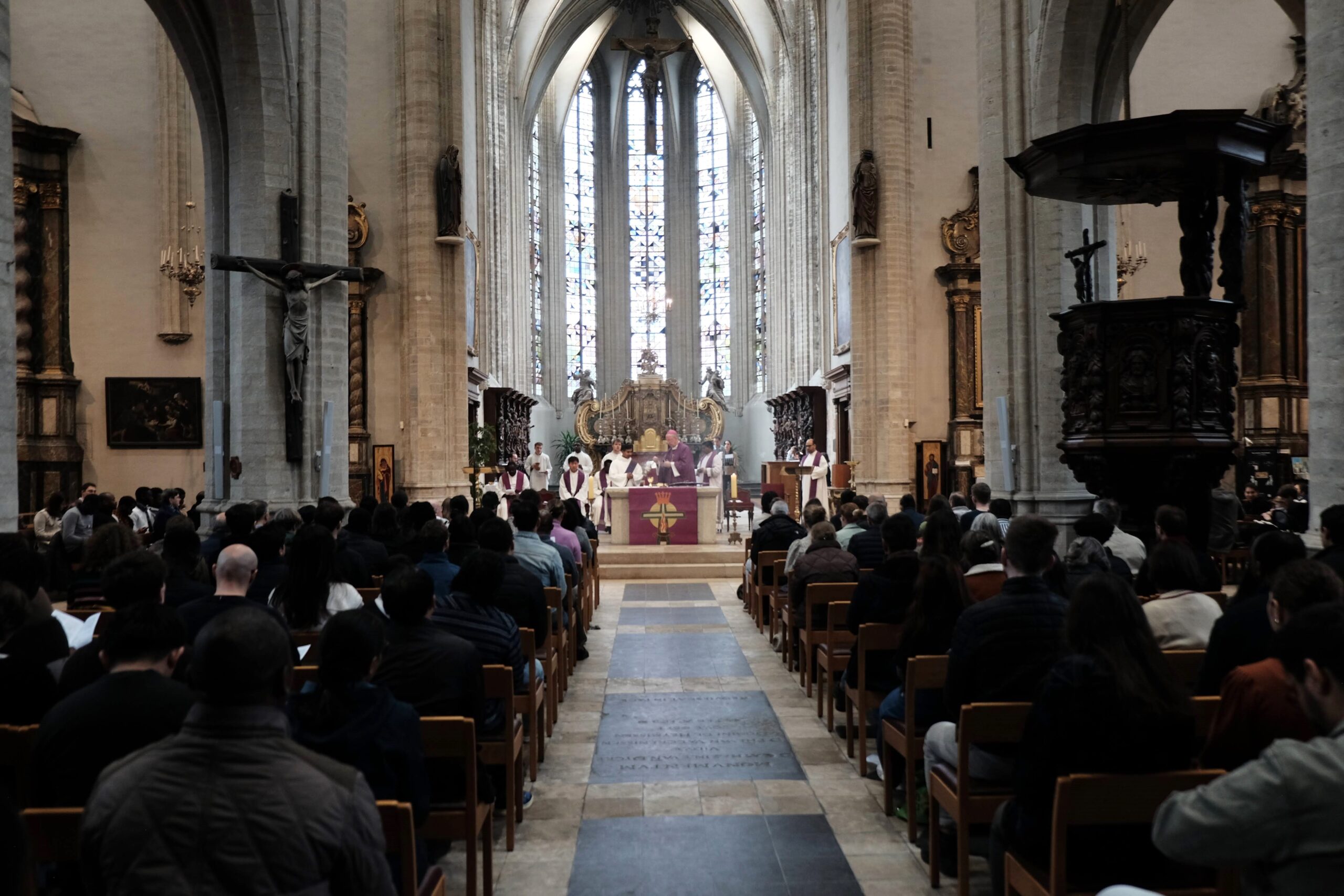
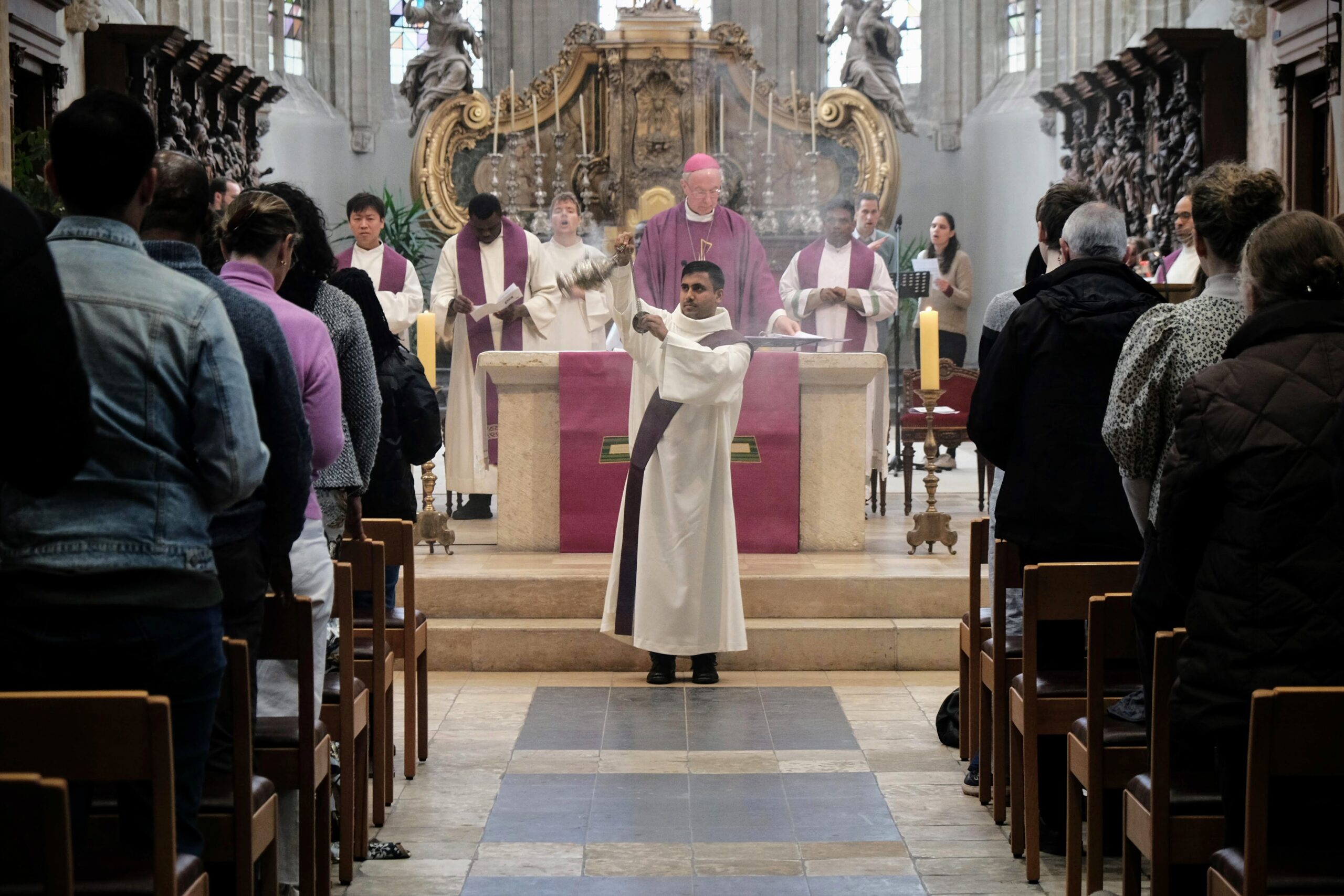
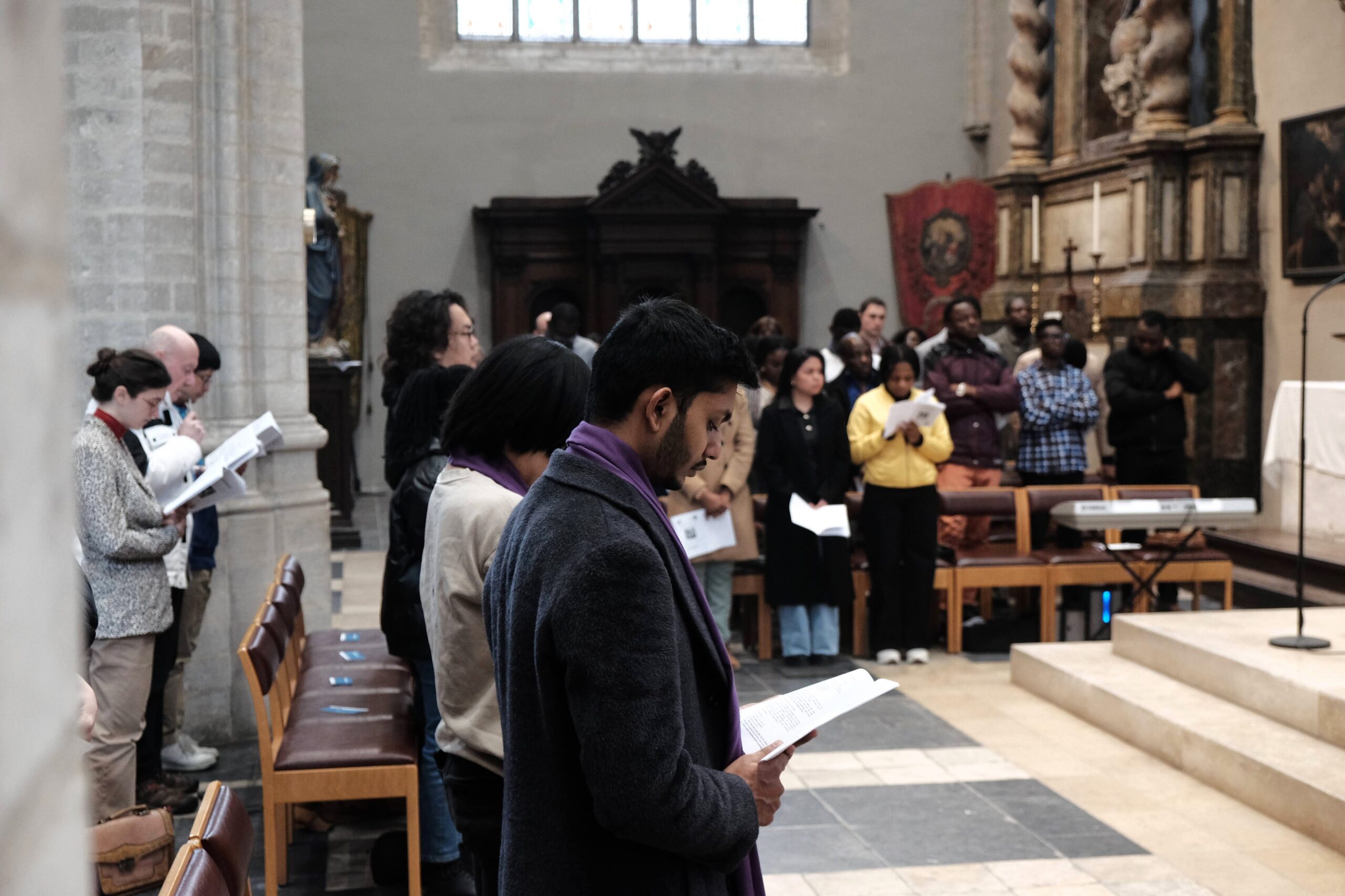
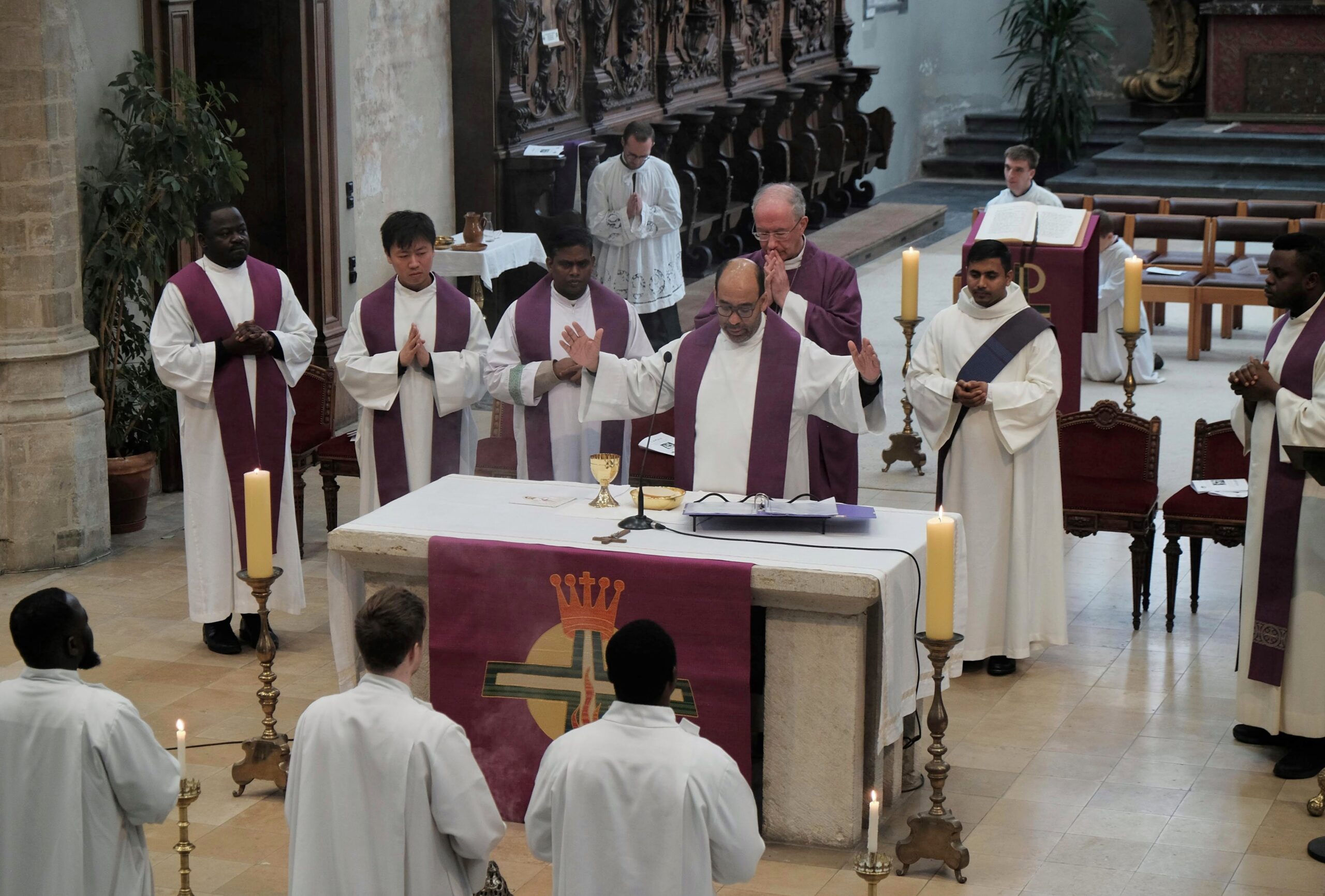
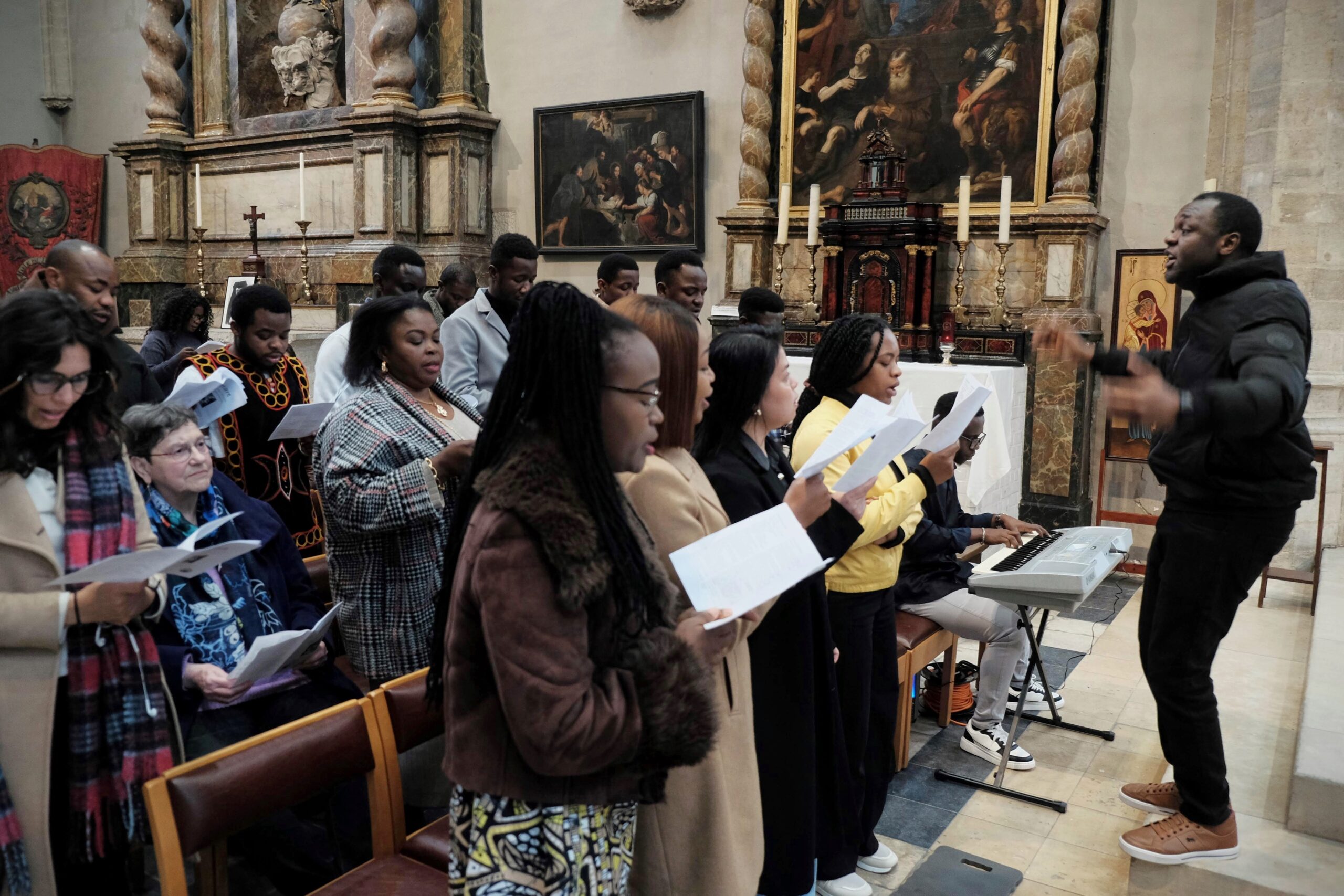
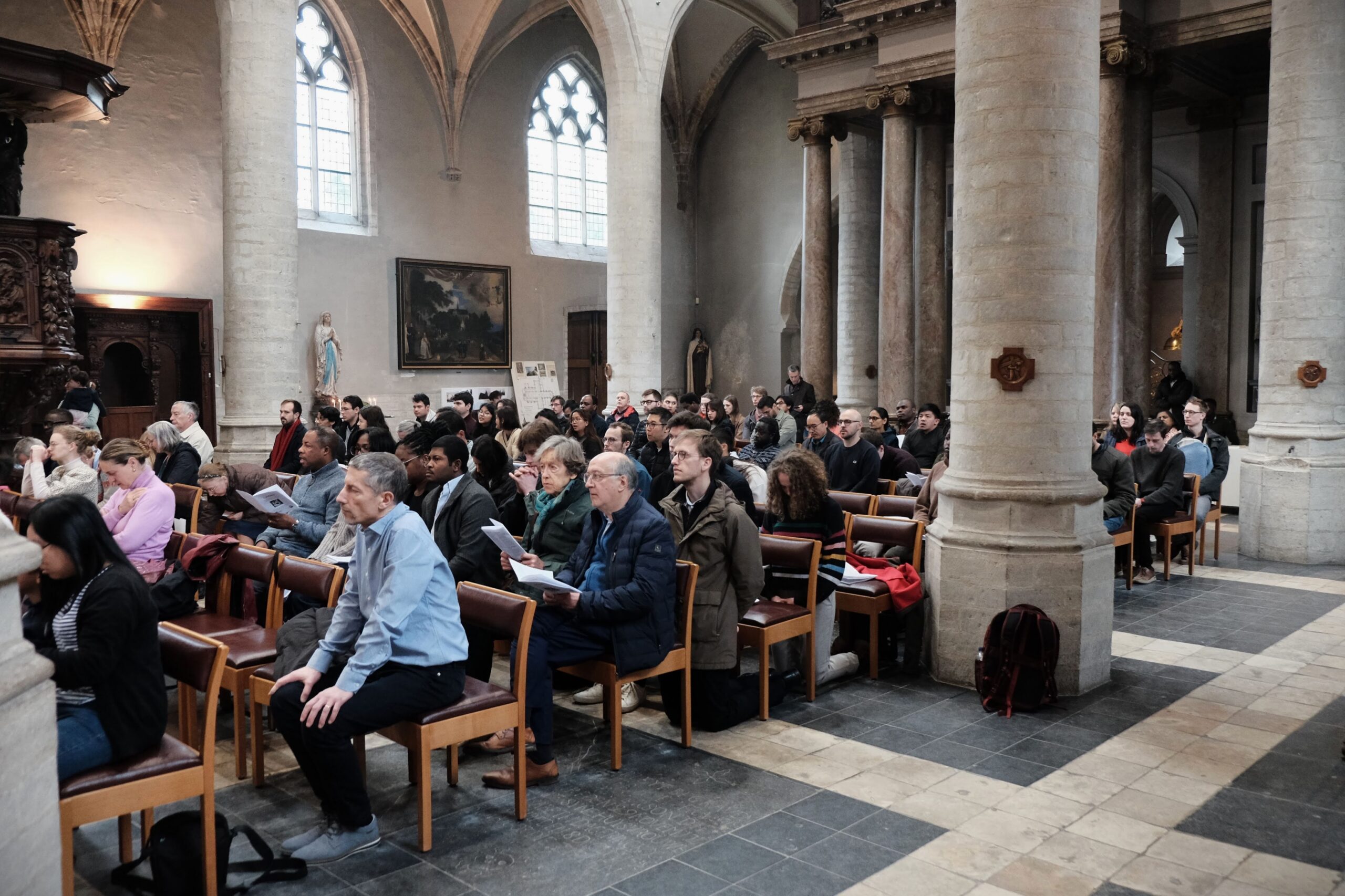
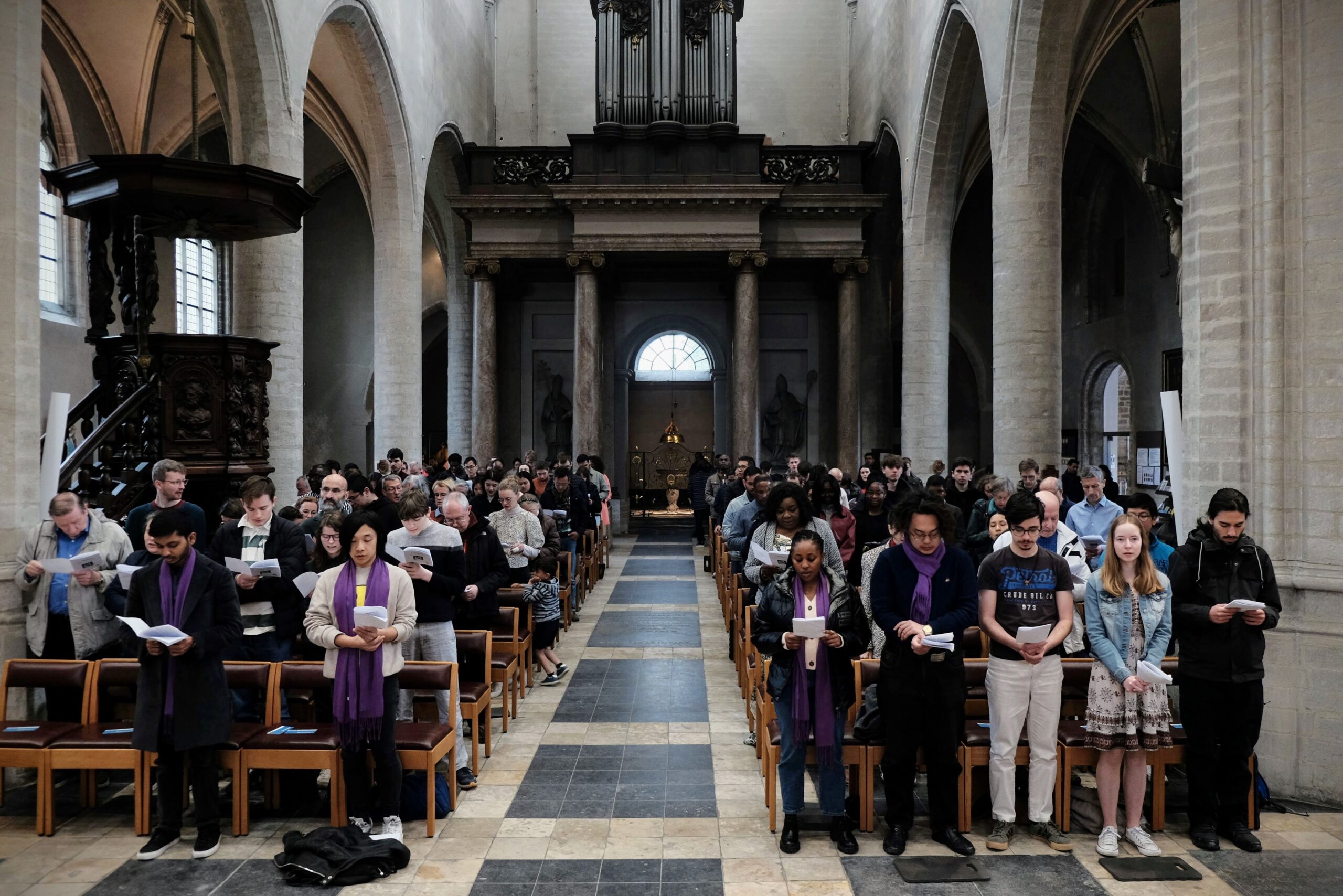
Drie personen staan centraal in de overbekende parabel die we zopas beluisterden: een vader en twee zonen. Het is goed om hun portret even van dichterbij te bekijken en na te gaan in wie van hen we ons kunnen herkennen.
The first prodigal son chooses to go his own way and turns himself away from his home. He breaks with his father. He claims part of the inheritance. With this money, he can buy himself some friends and live a lazy life. The whole world seems to revolve around his own person. It all sounds strong ans exaggerated. But it happens. Perhaps we ourselves have chosen for our own benefit and pleasure at the expense of others we let down. It is a sin every time we lose connection with God and fellow human beings to live only for ourselves.
Soon, however, disillusionment comes. Choosing to revolve only around oneself brings a great emptiness. When the money runs out, his friends abandon the youngest son. He falls to the lowest ground. He no longer lives as a human being and dwells with the unclean animals. Without food, he is in danger of perishing. Perhaps we have also experienced that exaggerate pursuit of our own pleasure makes us less, not more, human. You can feel yourself so empty then. You don’t represent much anymore.
Maar het dieptepunt in het verhaal is geen eindpunt. Juist in de ellendige toestand waarin hij is terechtgekomen, denkt de jongste zoon eraan om op zijn stappen terug te komen en weer naar huis te gaan. In zijn donkere nacht brandt het lichtje van de herinnering aan de thuis die hij had en misschien nog heeft. Hij ziet zijn misstap in en bereidt zich voor op een gesprek met zijn vader. Hij hoopt als knecht nog een plaatsje te krijgen. Ook voor ons is het zo belangrijk de herinnering te koesteren aan God die ons altijd tot Vader wil zijn en aan mensen die steeds bereid zijn ons weer op te nemen. God geve ons de moed om naar Hem terug te gaan met een hart vol berouw, met een eerlijke belijdenis. De verassing die de jongste zoon te wachten stond, vertellen we straks als we stilstaan bij de vaderfiguur.
Maar er is een tweede verloren zoon, in wie we ons wellicht makkelijker herkennen. Hij is werkzaam, betrouwbaar en gehoorzaam aan zijn vader. Een prachtkerel die doet wat van hem gevraagd wordt. En toch is hij zo’n intriest figuur. Hij kent zijn vader alleen als de baas en ziet zichzelf alleen als knecht. Hij voelt de warme bloedband niet die hem met zijn vader verbindt. Hij zet zich vast in zelfbeklag en kan niet intreden in de goede ontvangst die zijn broer te beurt valt. Misschien zijn we als die oudste zoon die doen wat God en mensen van ons verwachten. We leven zoals God het wil. Maar we kennen God niet als een warme Vader. Hij is voor ons de grote chef. We hebben weinig of geen voeling met de ontferming die God eigen is en met de nieuwe kansen die mensen krijgen na hun misstappen. Blijven we verlamd in zelfbeklag?
The father does all he can to bring a turn in the thinking and feeling of his eldest. He addresses him tenderly: ‘boy of mine, we belong together, we share everything’. But the question remains open whether the eldest son thaws at those heartwarming words from his father. It is up to us to continue writing the parable and on our way to Easter not to get stuck in law and justice but to welcome the surprising warmth of God’s mercy into our lives.
We are left with the father figure. He comes off as really surprising. First of all, it is striking that he leaves his youngest son free and does not prevent him from going his own way. Further, the parable reveals that the father waits and looks forward to his youngest’s return. His offer of forgiveness is always there. And then, read carefully what the parable does not say. When the youngest returns, the father does not send him reproaches. He does not reprimand him. He does not push him away from him. On the contrary, he embraces and kisses him. He sets up an extraordinarily large banquet. That excess of goodness speaks of God’s mercy that knows no limits and no conditions. It is like Easter for Him when a child who was lost is found, a child who was dead and is brought back to life.

